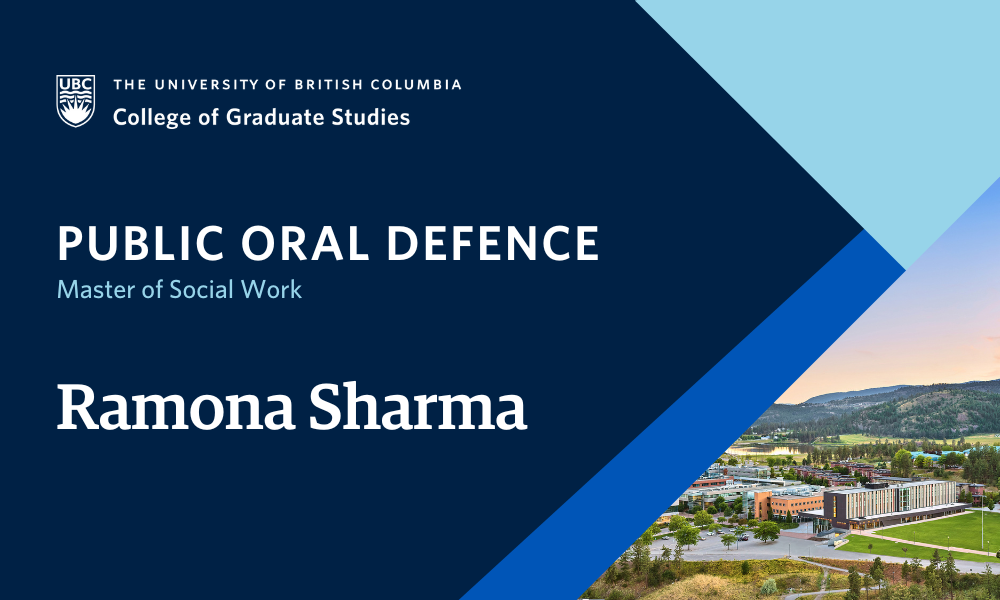
- This event has passed.
Thesis Defence: “Higher” Education: A Mixed Methods Exploration of ADHD, Cannabis Use, and Postsecondary Academic Success
March 11 at 9:30 am - 1:30 pm

Ramona Sharma, supervised by Dr. Rachelle Hole, will defend their thesis titled “’Higher’ Education: A Mixed Methods Exploration of ADHD, Cannabis Use, and Postsecondary Academic Success” in partial fulfillment of the requirements for the degree of Master of Social Work.
An abstract for Ramona Sharma’s thesis is included below.
Defences are open to all members of the campus community as well as the general public. Please email rachelle.hole@ubc.ca to receive the Zoom link for this defence.
ABSTRACT
Problem: Postsecondary students with ADHD are more likely to experience diminished academic self-concept (ASC) and achievement. Some adults with ADHD report using cannabis to alleviate ADHD-related challenges and allow for greater academic and psychosocial functioning. We thus conducted an exploratory, mixed methods study on the numerical and perceived relationships between ADHD, cannabis use, and academic success.
Method: We collected data from 586 Canadian postsecondary students with and without ADHD and aged 19+ using an anonymous online survey on Reddit and Facebook. Participants answered questions surrounding their ASC, cumulative GPA (cGPA), major-specific GPA (mGPA), dropped and failed courses, and dropped and failed terms. We also asked a subsample of 180 cannabis users with ADHD open-ended questions about their cannabis use experiences with respect to their ADHD and postsecondary functioning.
Quantitative Findings: Analysis of Variance and negative binomial regression procedures indicated cannabis use to be associated with enhanced academic success among ADHD students. Specifically, among non-ADHD students, cannabis users had significantly lower cGPA and mGPA, more dropped courses and more dropped and failed terms per year; however, among ADHD students, cannabis users had higher ASC, and no significant differences in cGPA, mGPA, dropped courses, or dropped/failed terms compared to non-users.
Qualitative Findings: Qualitative themes were captured via content analysis. Many students had intentionally used cannabis to manage ADHD challenges and assist with schoolwork by enhancing ASC, creativity, executive functions such as focus, task initiation, and flexible thinking, as well as by reducing hyperactivity-impulsivity, coping with mental health, enhancing sleep and relaxation, enhancing interpersonal relations, and alleviating debilitating stimulant medication side effects. Some found undesirable effects, specifically interrelated forgetfulness, tiredness, and amotivation.
Conclusions: The results of this study are cross-sectional and do not determine whether cannabis use or preexisting differences between ADHD cannabis users and non-users caused improved academic success. However, findings indicate many ADHD postsecondary students may perceive benefit from cannabis use. Our study thus highlights the need for further research, and warrants researchers, educators, and clinicians to consider cannabis’s emerging role in assisting with postsecondary success and functioning among ADHD students.